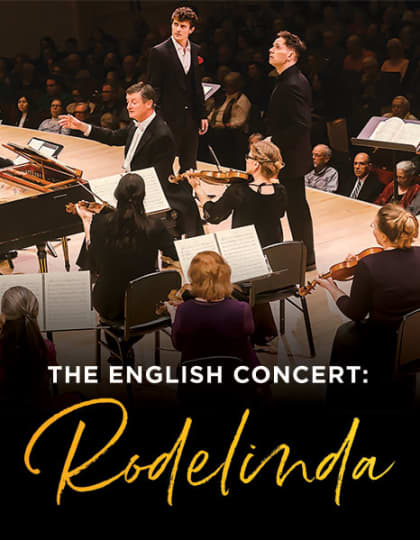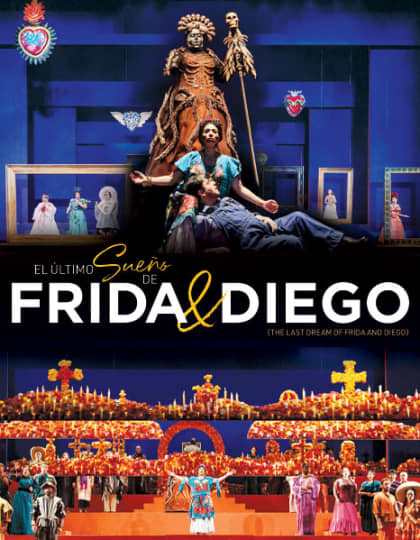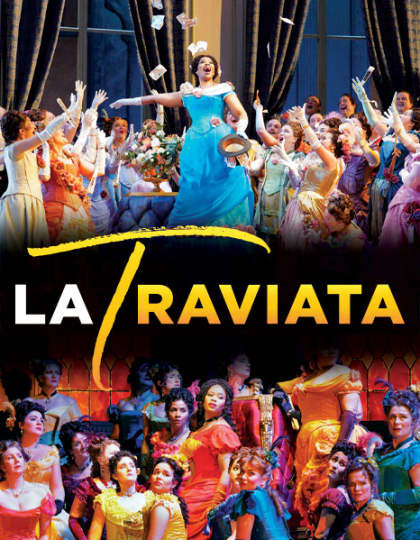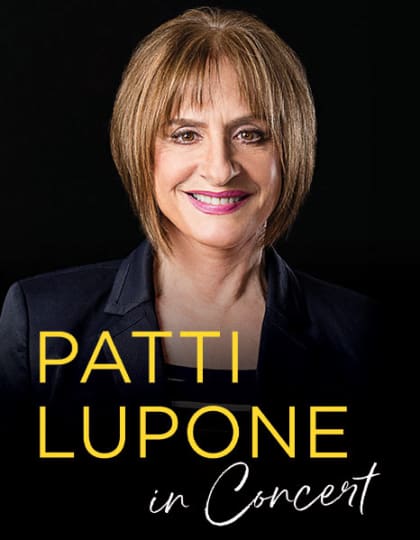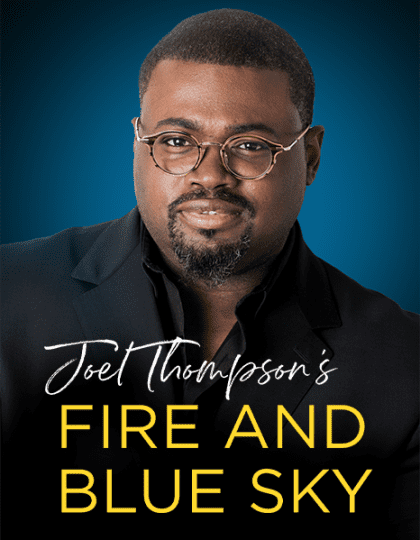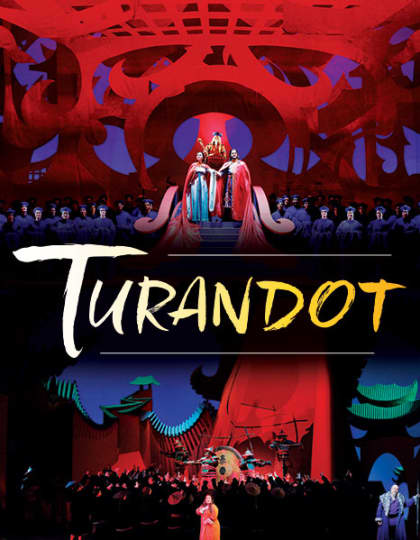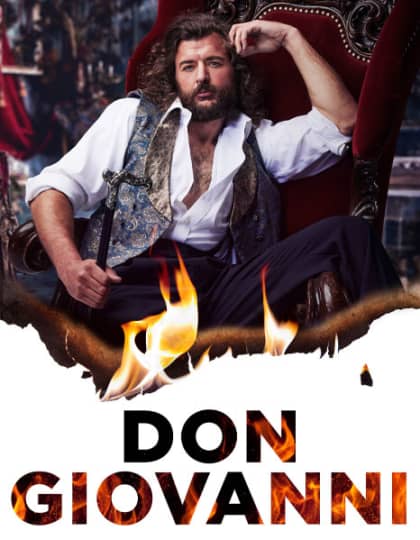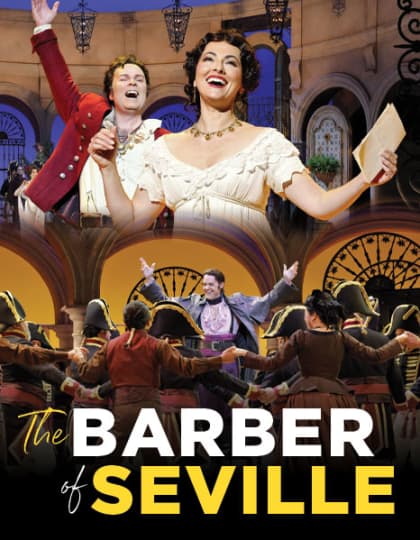Puccini’s blockbuster returns to LA Opera for the first time in two decades, in a fantastical production designed by David Hockney.
Captivated by a beauty who scorns love, a renegade prince enters an all but impossible contest, where the price of failure is death. But beyond the legendary riddles, he’ll find another challenge in melting Turandot’s stubborn heart.
Soprano Angela Meade takes on the thrilling title role, with tenor Russell Thomas as her impetuous suitor and soprano Guanqun Yu as the woman who shows everyone the true meaning of devotion.
Get More with a DYO Package. Design-Your-Own Package with 3 or more shows starting at $56. Customize which shows and dates you attend plus receive added benefits. DYO PACKAGE
Swipe for More

A scene from the David Hockney-designed production of "Turandot"
Cory Weaver / San Francisco OperaSwipe for More
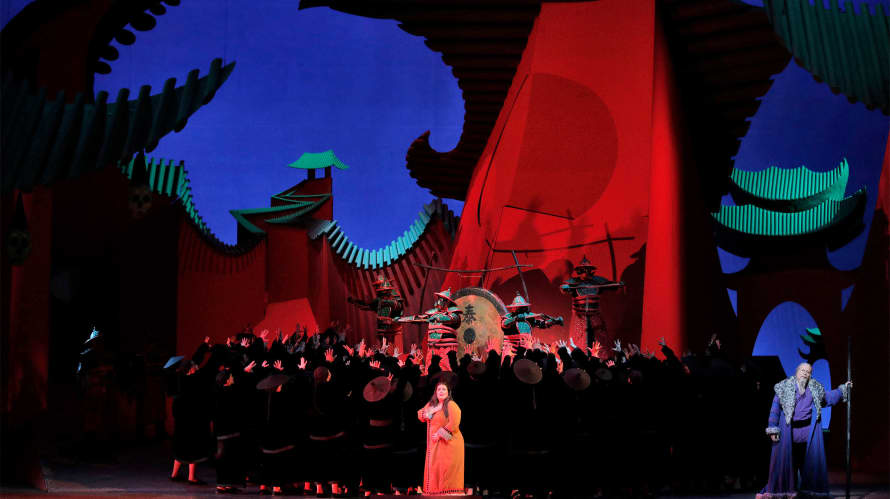
A scene from the David Hockney-designed production of "Turandot"
Cory Weaver / San Francisco OperaSwipe for More

A scene from the David Hockney-designed production of "Turandot"
Cory Weaver / San Francisco OperaSwipe for More

A scene from the David Hockney-designed production of "Turandot"
Cory Weaver / San Francisco Opera“Meade’s voice has lustrous body and brilliant volume. There is dark richness that holds the potential for exceptional expressivity when that weight of sound is moved with graceful ease.”
“The designs [by David Hockney] were at once enchanting and disorienting, brightly timbred and coolly esthetic, powerfully alluring and disturbingly inhuman.”
Cast
- Turandot
- Angela Meade
- Calaf
- Russell Thomas
- Liù
- Guanqun Yu
- Timur
- Morris Robinson
- Ping
- Ryan Wolfe
- Pang
- Terrence Chin-Loy
- Pong
- Julius Ahn
- A Mandarin
- Alan Williams
- Emperor Altoum
- Ashley Faatoalia
Angela Meade
Turandot

From: Centralia, Washington. LA Opera: Donna Anna in Don Giovanni (2012, debut); title role of Norma (2015); Queen Elizabeth in Roberto Devereux (2020); title role in Turandot (2024).
Photo: Faye Fox
American soprano Angela Meade is the winner of both the Metropolitan Opera’s 2012 Beverly Sills Artist Award and the 2011 Richard Tucker Award. In 2008 she joined an elite group of history’s singers when, as Elvira in Verdi’s Ernani, she made her professional operatic debut on the Met stage. Since then she has fast become recognized as one of today’s outstanding vocalists, excelling in the most demanding heroines of the 19th-century bel canto repertoire as well as in the operas of Verdi and Mozart.
In the 2022/23 season, Angela Meade made her role debut as Leonora in La Forza del Destino and performed in a 70th anniversary gala with Amigos de la Ópera de A Coruña in A Coruña, Spain. She returned to Asociación Bilbaína de Amigos de la Ópera (“ABAO”) to perform the title role in the third act of Aida in concert. She made her role debut as the title role in Lucrezia Borgia in her house debut at Munich's Bavarian State Opera before returning to the Metropolitan Opera for Elisabeth de Valois in Sir David McVicar’s production of Don Carlo conducted by Carlo Rizzi. She returned to Teatro Regio di Torino for the Verdi Requiem before making her Teatro alla Scala debut, singing the role of Elena in I Vespri Siciliani conductd by Fabio Luisi. Following her debut at La Scala, her appearances include the title role in Aida in Torino, Lucrezia Contarini in The Two Foscari at Teatro Carlo Felice, and Elvira in Ernani at Palau De Les Arts Reina Sofia.
Meade began the 2021/22 season as Sieglinde in Die Walküre alongside Eric Owens and Brandon Jovanovich at Seattle Opera before singing the role of Amelia Grimaldi in Simon Boccanegra at Teatro Regio di Parma. She sang the title role in Norma at Teatro Municipale di Piacenza and Teatro Comunale Luciano Pavarotti di Modena. She sang the title role in Anna Bolena at Teatro Carlo Felice in Genova before returning to Teatro Regio di Parma for a reprise of Norma. She made a return to Bilbao to sing Rossini’s Stabat Mater with Nicola Luisotti and sang a recital with Myra Huang for the Wexford Festival Opera. She also returned to Teatro Massimo di Palermo for the Verdi Requiem and performed the role of Elvira in Ernani at Teatro dell’Opera di Roma. She sang Beethoven’s Symphony No. 9 with Toronto Symphony conducted by Gustavo Gimeno before debuting the role of Amelia in Un Ballo in Maschera at the Verbier Festival conducted by Gianandrea Nosdea.
In the 2020/21 season, Ms. Meade gave a recital at Seattle Opera alongside mezzo-soprano Jamie Barton, and then sang a concert featuring selections from Verdi operas with the Dallas Symphony and music director Fabio Luisi. She also returned to Bilbao for a gala concert featuring music from Aida, then reprising the title role in Aida at Arena di Verona.
In the 2019/20 season, Ms. Meade sang Elisabetta in Roberto Devereux at LA Opera, the title role in Aida at the Gran Teatro del Liceu, the title roles in both Norma and Rossini’s Ermione at Teatro San Carlo in Naples, and Elisabetta in Don Carlo at Amigos de la Opera de la Coruña in Spain. In concert, she sang Verdi’s Messa da Requiem with the Elbphilharmonie in Hamburg, conducted by Alan Gilbert.
In the 2018/19 season, Ms. Meade joined forces with Yannick Nézet-Séguin and the Orchestre Métropolitain for a special performance of Verdi’s Messa da Requiem in memory of Jacqueline Desmarais. Domestic opera engagements included a role debut as Margherita in the Robert Carsen production of Boito’s Mefistofele at the Metropolitan Opera, a house debut at Seattle Opera as Leonora in Il Trovatore and a return to Dallas Opera as Alice Ford in Falstaff, while internationally, she reprised Leonora at Teatro de la Maestranza de Sevilla in Spain. In concert, Ms. Meade sang Mahler’s Symphony No. 8 at the Ravinia Festival with Marin Alsop and the Chicago Symphony Orchestra and Chorus, reprised the Messa da Requiem with the RTÉ National Symphony under the baton of Michele Mariotti, and appeared in a gala concert in her debut at the Rossini Opera Festival.
Operatic highlights of recent seasons include performances at the Metropolitan Opera as the title role in both Norma and Semiramide (broadcast Live in HD in theaters worldwide), Donna Anna in Don Giovanni, and Leonora; at Washington National Opera as the title role in Handel’s Alcina; at Oper Frankfurt as the title role in Cilea’s Adriana Lecouvreur; at the Teatro Real in Madrid as both Norma and Lucrezia in Verdi’s The Two Foscari; at the Teatro Regio di Torino as Giselda in Verdi’s I Lombardi; and, stepping in as a last-minute replacement, at Deutsche Oper Berlin as Leonora.
Ms. Meade’s concert highlights of recent seasons include performances with the Los Angeles Philharmonic Orchestra in Janáček’s Glagolitic Mass, under the baton of music director Gustavo Dudamel; at Lincoln Center for the Metropolitan Opera’s 50th Anniversary celebration concert; with the Philadelphia Orchestra for their 2016 New Year’s Eve Gala; in the Messa da Requiem for her debut at Houston Grand Opera, under the baton of music director Patrick Summers; at the Grant Park Music Festival in Martinů’s The Epic of Gilgamesh; at the Caramoor Music Festival for an opening night gala and in performances of Il Pirata; with the St. Louis Symphony Orchestra in Beethoven’s Symphony No. 9; with the Cincinatti Symphony Orchestra in Rachmaninoff’s The Bells; with the NHK Symphony Orchestra in Mahler’s Symphony No. 8 for her Japanese debut; and as Ermione under the baton of the late Alberto Zedda with the Russian National Orchestra in Moscow, as well as with the Opéra de Lyon Orchestra in Lyon and in Paris at the Théâtre des Champs-Elysées. She has also presented solo recitals at the Kennedy Center in Washington, D.C., as well as in Philadelphia, Santa Fe, and Waterford (VA).
Following her momentous Met debut, Ms. Meade’s numerous returns to the storied New York house included performances as the title role in Sir David McVicar’s new production of Anna Bolena, Leonora in Il Trovatore, Contessa Almaviva in The Marriage of Figaro and Alice Ford in a new production of Falstaff under James Levine, as seen around the world in the Met’s Live in HD series and released on DVD by Decca Classics. She also reprised Elvira in a production seen both in the Met’s Live in HD series and on a Great Performances at the Met presentation on PBS. Elsewhere in New York City, she has performed at Carnegie Hall as both the title role in Bellini’s Beatrice di Tenda and Amaltea in Rossini’s Moïse et Pharaon, and at Lincoln Center as Giselda in Verdi’s I Lombardi with the Opera Orchestra of New York. Career operatic highlights also include house debuts at the Vienna State Opera as Elena in Verdi’s I Vespri Siciliani, the Teatro Regio di Torino in Italy as Mathilde in Rossini’s Guglielmo Tell, both LA Opera and Cincinnati Opera as Donna Anna in Don Giovanni, and her first fully-staged portrayal of Norma at Washington National Opera, where as she was subsequently honored as the “2013 Artist of the Year.”
On the concert stage, Ms. Meade has appeared as a soloist with the New York Philharmonic, Baltimore Symphony, Boston Symphony, Cleveland Orchestra, Houston Symphony, Minnesota Orchestra, Orchestre Métropolitain, Philadelphia Orchestra, Pittsburgh Symphony, Saint Paul Chamber Orchestra, San Antonio Symphony, and Seattle Symphony, among others. Conductors with whom she has collaborated include Roberto Abbado, Marin Alsop, Marco Armiliato, Maurizio Benini, Will Crutchfield, Thomas Dausgaard, Charles Dutoit, Riccardo Frizza, Manfred Honeck, Sebastian Lang-Lessing, James Levine, Fabio Luisi, Yannick Nézet-Séguin, Gianandrea Noseda, Donald Runnicles, Gerard Schwarz, and Osmo Vänskä.
A native of Washington State and an alumna of the Academy of Vocal Arts, Ms. Meade has triumphed in an astounding number of vocal competitions: 57 in all, including many of the opera world’s most important prizes. In addition to being a winner at the 2007 Metropolitan Opera National Council Auditions, as documented in The Audition, a film subsequently released on DVD by Decca, she was also the first singer to take first prize in both the opera and operetta categories of the prestigious Belvedere Competition.
Learn more at AngelaMeade.com.
Russell Thomas
Calaf
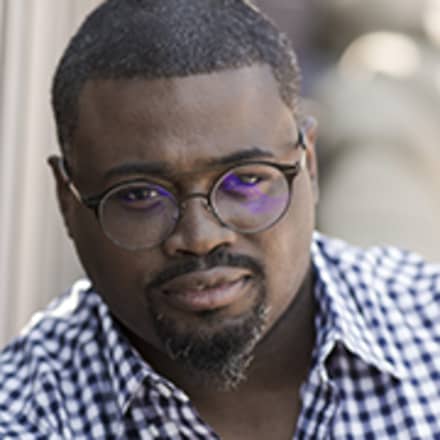
From: Miami, Florida. LA Opera: Pollione in Norma (2015, debut); Cavaradossi in Tosca (2017); title role in The Clemency of Titus (2019); online Signature Recital (2021); title role of Oedipus Rex (2021); Radames in Aida (2022); title role in Otello (2023); Calaf in Turandot (2024); soloist in Fire and Blue Sky (2024). He has been the company's Artist in Residence since 2021.
With a “heroically shining tone of exceptional clarity and precision” (Opera magazine) and “gorgeously burnished power” (The New York Times), American tenor Russell Thomas uses his signature elegance and intensity to create vivid character portrayals on the world’s most important stages.
In the 2023/24 season, Mr. Thomas undertakes his first Parsifal at Houston Grand Opera and returns to major stages around the world in signature Verdi and Puccini roles. He sings Radames in Lyric Opera of Chicago’s Aida, Cavaradossi in the Royal Opera House’s Tosca, Calaf in LA Opera’s Turandot and Alvaro in the Norwegian Opera’s La Forza del Destino. He appears in concert and recital with the Edinburgh International Festival, Chicago Symphony Orchestra, St. Louis Symphony Orchestra, and Vocal Arts DC at the Kennedy Center for the Performing Arts, before concluding his artistic residency at LA Opera with Fire and Blue Sky, a world premiere song cycle composed for him by Joel Thompson.
Acclaimed for his “voice of intrinsic warmth and refined sense of style” (Opera News), Mr. Thomas has enjoyed a string of operatic triumphs in key Verdi roles, including appearances as Otello at Canadian Opera Company and the Royal Opera House Covent Garden, Ernani at Lyric Opera of Chicago, Manrico in Il Trovatore at the Bavarian State Opera in Munich, Radames in Aida at Houston Grand Opera, Stiffelio at Opera Frankfurt, and Don Alvaro in La Forza del Destino at Deutsche Oper Berlin and Opéra National de Paris. An alumnus of the Metropolitan Opera’s Lindemann Program, he most recently returned to the Met as Don Carlo and Rodolfo in La Bohème. Other important appearances include Cavaradossi at Lyric Opera of Chicago, Idomeneo at the Salzburg Festival, Roberto Devereux at San Francisco Opera, Radames and Otello at LA Opera, Florestan in Fidelio at San Francisco Opera and Cincinnati Opera, and Calaf and Adorno in Simon Boccanegra at the Royal Opera House Covent Garden. Mr. Thomas created the role of Lazarus in the world premiere of The Gospel According to the Other Mary by John Adams and Peter Sellars, and his portrayal of Tito in the new Sellars production of La Clemenza di Tito at the Salzburg Festival drew praise from The New Yorker, which noted, “Thomas’s penetrating tenor, which has lately acquired richness and heft, anchored the evening.”
Mr. Thomas’s “ardent expression and spine-tingling high notes” (Cincinnati Enquirer) have been heard in the Verdi Requiem with the New York Philharmonic, Baltimore Symphony Orchestra, and the symphony orchestras of Washington, D.C. and Barcelona. He has appeared as tenor soloist in Mahler’s Das Lied von der Erde with the Los Angeles Philharmonic, New York Philharmonic, Accademia Nazionale di Santa Cecilia, and the symphonies of Dallas, Detroit, Atlanta, Seattle, and Houston; the title role in Oedipus Rex at LA Opera and with Finnish Radio Symphony Orchestra, under the baton of Esa-Pekka Salonen; and as tenor soloist in Beethoven’s Symphony No. 9 with the New York Philharmonic, Vienna Philharmonic, Dallas Symphony, BBC Proms, and Boston Symphony Orchestra at Tanglewood. He joined the Met Orchestra for their first overseas tour in more than 20 years, singing Otello opposite Angel Blue at Carnegie Hall, Philharmonie de Paris, Barbican Centre, and Festspielhaus Baden-Baden.
During the hybrid 2020/21 season, Mr. Thomas began his tenure as Artist in Residence at LA Opera, where he plays a substantial role in artistic planning and casting. In addition to hosting and curating the company’s After Hours recital series, he has spearheaded new training programs designed to serve outstanding singers from historically Black colleges and universities and Los Angeles public high school students from underserved communities.
Learn more at RussellThomasTenor.com.
Mr. Thomas has enjoyed a string of operatic triumphs in recent seasons, including performances as Don Carlo at Washington National Opera and Deutsche Oper Berlin; Cavaradossi in Tosca at LA Opera and with the Los Angeles Philharmonic; and Pollione in Norma at Lyric Opera of Chicago, San Francisco Opera, LA Opera, Canadian Opera Company, and Palau de les Arts Reina Sofia. He has debuted as Florestan in Fidelio at Cincinnati Opera, as Stiffelio at Oper Frankfurt, and as Turiddu in Cavalleria Rusticana at Deutsche Oper Berlin. Mr. Thomas has sung Rodolfo in La Bohème at the Metropolitan Opera, Loge in Das Rheingold with the New York Philharmonic, Adorno in Simon Boccanegra at the Royal Opera House Covent Garden, and Ismaele in Nabucco at the Metropolitan Opera and Seattle Opera. His portrayal of the title character in the new Peter Sellars production of The Clemency of Titus at the Salzburg Festival and Dutch National Opera drew praise from the The New Yorker, which noted, “Thomas’s penetrating tenor, which has lately acquired richness and heft, anchored the evening.”
Future seasons include appearances in Berlin, London, Toronto, Chicago, Houston, New York, and Washington, D.C.
Learn more at RussellThomasTenor.com.
Guanqun Yu
Liù
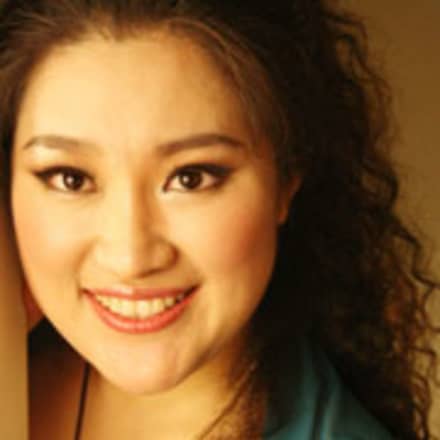
From: Shandong, China. LA Opera: Rosina in The Ghosts of Versailles (2015, debut); Countess in The Marriage of Figaro (2015); Vitellia in The Clemency of Titus (2019); Leonora in Il Trovatore (2021); Donna Anna in Don Giovanni (2023); Liu in Turandot (2024).
Soprano Guanqun Yu is a regular guest at international opera houses in Europe and America. Her engagements in the 2022/23 season included the staged version of Verdi's Messa da Requiem at the Nederlandse Opera Amsterdam, Micaela in Carmen at the Staatsoper Hamburg, her role debut as Elvira in a new production of Ernani at the Festspielhaus Bregenz, and again Verdi's Messa da Requiem with the Royal Danish Symphony Orchestra.
In addition to the major Mozart roles such as Vitellia, Elettra, Contessa, Fiordiligi, Donna Anna and Donna Elvira, Guanqun Yu's repertoire features the Italian repertoire in particular. She has sung Leonora in Il Trovatore at the Metropolitan Opera, LA Opera and at the Teatro Comunale di Bologna, Amelia in Simon Boccanegra in Valencia, Hamburg and Frankfurt, Desdemona in Otello at the Palau de les Arts in Valencia, at the Deutsche Oper Berlin as well as at the Hamburg State Opera, Mimì in La Bohème in a new production at the Zurich Opera House as well as at the Bavarian State Opera in Munich and Liù in Turandot at the Metropolitan Opera, the Opéra de Paris, Staatsoper Hamburg, in Zurich, Cologne and at the Bregenz Festival.
Guanqun Yu is also familiar with the French repertoire singing Micaëla in Carmen and Mathilde in Guillaume Tell – a role which brought her a great personal triumph in a new production at Hamburg State Opera.
Her numerous engagements also led her to the Deutsche Oper Berlin and the Semperoper Dresden. With Lucrezia in a concert performance of I due Foscari, she madeher highly noticed debut at the Salzburg Festival in 2017.
Guanqun Yu has worked with conductors such as Zubin Mehta, James Levine, Michele Mariotti and Cornelius Meister. In 2010 she made her debut in Vienna in Honegger’s Jeanne d’Arc under the baton of Bertrand de Billy. Numerous concert commitments have taken Guanqun Yu to Scandinavia and Germany.
Guanqun Yu is winner of the Belvedere singing competition and winner of the renowned Operalia competition. After studying in Shandong and Shanghai, she was a member of the opera studio at the Teatro Comunale di Bologna.
Her interpretation of Lina in Verdi's Stiffelio was released on DVD in a production from Parma.
Learn more at GuanqunYu.com.
Morris Robinson
Timur
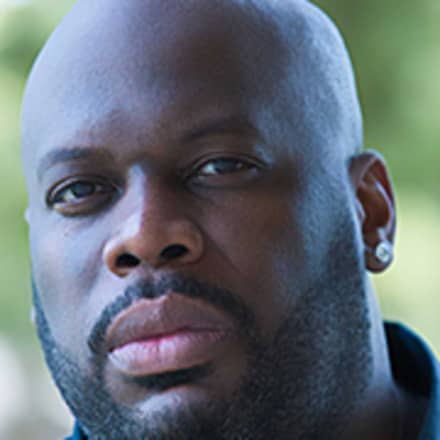
From: Atlanta, Georgia. LA Opera: Sarastro in The Magic Flute (2009, debut); Fasolt in Das Rheingold (2009, 2010); Oroveso in Norma (2015); Osmin in The Abduction from the Seraglio (2017); Zaccaria in Nabucco (2017); Sparafucile in Rigoletto (2018); Grand Inquisitor in Don Carlo (2018); Parsi Rustomji in Satyagraha (2018); Ferrando in Il Trovatore (2021); Hermann in Tannhäuser (2021); Ramfis in Aida (2022); Lodovico in Otello (2023); Timur in Turandot (2024).
Morris Robinson is considered one the most interesting and sought-after basses performing today.
He regularly appears at the Metropolitan Opera, where he is a graduate of the Lindemann Young Artist Program. He debuted there in a production of Fidelio and has since appeared as Sarastro in The Magic Flute (both in the original production and in the children’s English version), Ferrando in Il Trovatore, the King in Aida, and in roles in Nabucco, Tannhäuser, and the new productions of Les Troyens and Salome. He has also appeared at the San Francisco Opera, Lyric Opera of Chicago, Dallas Opera, Houston Grand Opera, Boston Lyric Opera, Pittsburgh Opera, Opera Philadelphia, Seattle Opera, LA Opera, Cincinnati Opera, Boston Lyric Opera, Opera Theater of St. Louis, Teatro alla Scala, Volksoper Wien, Opera Australia, and the Aix-en-Provence Festival. His many roles include the title role in Porgy and Bess, Sarastro in The Magic Flute, Osmin in The Abduction from the Seraglio, Ramfis in Aida, Zaccaria in Nabucco, Sparafucile in Rigoletto, Commendatore in Don Giovanni, Grand Inquisitor in Don Carlo, Timur in Turandot, the Bonze in Madama Butterfly, Padre Guardiano in La Forza del Destino, Ferrando in Il Trovatore, and Fasolt in Das Rheingold.
Also a prolific concert singer, Mr. Robinson’s recently made his debut with the City of Birmingham Symphony Orchestra in performances of the Mahler Symphony No. 8 with its music director, Mirga Gražinytė-Tyl. His many concert engagements have included appearances with the New York Philharmonic, Chicago Symphony Orchestra, Boston Symphony Orchestra, Philadelphia Orchestra, Los Angeles Philharmonic Orchestra, Atlanta Symphony Orchestra (where he was the 2015/16 Artist in Residence), San Francisco Symphony Orchestra, Baltimore Symphony, National Symphony Orchestra, Houston Symphony, L’Orchestre Symphonique de Montreal, Met Chamber Orchestra, Nashville Symphony Orchestra, São Paulo Symphony Orchestra, New England String Ensemble, and at the BBC Proms and the Ravinia, Mostly Mozart, Tanglewood, Cincinnati May, Verbier, and Aspen Music Festivals. He also appeared in Carnegie Hall as part of Jessye Norman’s HONOR! Festival. In recital he has been presented by Spivey Hall in Atlanta, the Savannah Music Festival, the National Academy of Sciences in Washington, DC, the Philadelphia Chamber Music Society, and the Metropolitan Museum of Art in New York City.
Mr. Robinson’s solo album, Going Home, was released on the Decca label. He also appears as Joe in the DVD of the San Francisco Opera production of Show Boat, and in the DVDs of the Metropolitan Opera’s production of Salome and the Aix-en-Provence Festival’s production of Mozart’s Zaide.
For the reduced 2020/21 season, Mr. Robinson returns to both the Michigan Opera Theater and the Lyric Opera of Chicago as Haggen in Twilight: Gods, an innovative production of Gotterdämmerung created by Yuval Sharon. He also sings Sparafucile in a special performance of Rigolettto produced by the Tulsa Opera. He is also a member of the Atlanta Opera’s Company Players for the 2020/21 season where he will appear in various concerts, recitals, and educations outreach events throughout the year.
An Atlanta native, Mr. Robinson is a graduate of The Citadel and received his musical training from the Boston University Opera Institute. He was recently named Artistic Advisor to the Cincinnati Opera.
To learn more, visit MorrisRobinson.com.
Ryan Wolfe
Ping
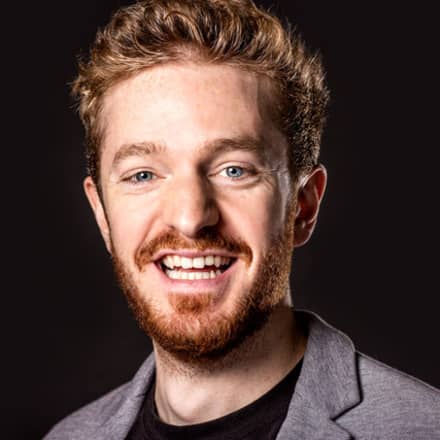
From: Arlington Heights, Illinois. LA Opera: soloist in Frankenstein with Live Orchestra (2022); Jailor in Tosca (2022, mainstage debut); Tarquinius in The Rape of Lucretia (2023); Moses in Moses (2023); Herald in Otello (2023); Fiorello in The Barber of Seville (2023); First Villager in Frida y Diego (2023); Marquis d'Obigny in La Traviata (2024); Ping in Turandot (2024). He joined the Domingo-Colburn-Stein Young Artist Program in 2022.
Ryan Wolfe is a passionate musician fueled by his love for collaboration and performance, who has been commended for his “commanding presence” and “well-tutored, polished baritone.”
In the summer of 2023, he performed Le Dancaïre in Carmen with Des Moines Metro Opera, followed by his Hollywood Bowl debut in Chris Thile's Attention! with the Los Angeles Philharmonic.
His 2022/23 season began with Mahler’s Kindertotenlieder with the Richmond Symphony followed by Beethoven’s Symphony No. 9 with the Los Angeles Chamber Orchestra. He made his LA Opera debut as the Jailer in Tosca, with later credits including the Herald in Otello, Tarquinius in The Rape of Lucretia conducted by Lina Gonzalez Granados, and the title character in Henry Mollicone’s Moses conducted by James Conlon. Additionally, he was the cover for the roles of Johnson/Owen in Omar, the Count in The Marriage of Figaro, and Golaud in Pelléas et Mélisande. He debuted with the Los Angeles Philharmonic as the Steersman in Wagner’s Tristan und Isolde conducted by Gustavo Dudamel.
In the summer of 2022, he returned to the Apprentice Artist Program at Des Moines Metro Opera to cover Peter Quince in A Midsummer Night’s Dream. The 2021/22 season saw him make several role debuts including the Count in The Marriage of Figaro and Cardinal 3/Priest/Father in Phillip Glass’s Galileo Galilei at the University of Cincinnati – College Conservatory of Music (CCM). In March of 2022, Ryan covered the role of Papageno in Barry Kosky’s internationally acclaimed production of The Magic Flute with Des Moines Metro Opera. Most recently, Ryan appeared as the baritone soloist in Carmina Burana with the Santa Cruz Symphony, conducted by Daniel Stewart.
He won an Encouragement Award in the Central Region Finals of the Eric and Dominque Laffont Competition in 2021, won first prize in the 2022 University of Cincinnati – CCM Corbett Opera Scholarship Competition and is a two-time semi-finalist (2021, 2022) of the Lotte Lenya Competition. He has also won awards from Classical Singer National Voice Competition and the Grand Junction Symphony Orchestra Young Artist Competition.
In the summer of 2021, he joined the Des Moines Metro Opera Company as an Apprentice Artist where he performed Sen. Potter’s Assistant/Bookseller/Priest/Technician/Party Guest in Gregory Spears’ Fellow Travelers and Narumov in The Queen of Spades and covered Cithéron in Rameau’s Platée. He was also featured as Pandolfe in Cendrillon and the title role in Don Giovanni in the festival’s scenes program. He made his professional debut in February 2020 with the Cincinnati Symphony Orchestra as the Armchair and Tree in Ravel’s L’enfant et les sortilèges under the baton of Louis Langrée and direction of James Bonas. A strong proponent of new music and a consummate musician, he collaborated with Opera Fusion:New Works - Cincinnati Opera to workshop Matthew Aucoin’s Eurydice (co-commissioned by LA Opera and the Metropolitan Opera).
Other operatic highlights include Belcore in L’elisir d’amore, Baron Mirko Zeta in The Merry Widow, Giove in La Calisto, Kecal in The Bartered Bride, Simone in Gianni Schicchi, and Seneca in The Coronation of Poppea. He has also been seen performing selections of Bernstein and Mahler with the CCM Philharmonic, and was the bass soloist in Vaughan Williams’ Serenade to Music with the DePaul University Symphony Orchestra.
Ryan completed his master’s degree before partially completing an artist diploma at the University of Cincinnati – CCM where he studied with esteemed baritone William McGraw. Upon Professor McGraw’s retirement, Ryan began studying with world-renowned baritone Elliot Madore. He is a proud alumnus of DePaul University where he received his bachelor of music, studying with Jeff Ray.
Terrence Chin-Loy
Pang
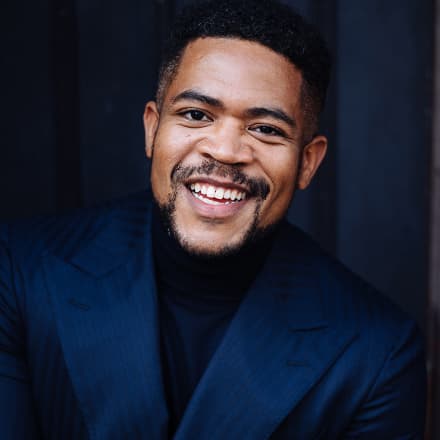
From: Phoenix, Arizona. LA Opera: Pang in Turandot (2024, debut).
American tenor Terrence Chin-Loy, whom Opera News described as having a “beautiful lyric tenor voice” pairs passionate performance with a full, sweet sound. In the 2022/23 season, Terrence will perform Tamino in The Magic Flute with the National Taichung Theater in Taiwan as well as at Arizona Opera, Don José in Carmen with MasterVoices at Lincoln Center, Old Head 2 and Charlie in the world premiere of Factotum with Lyric Opera of Chicago, Acis in Acis and Galatea with Eugene Opera, and join the roster of the Metropolitan Opera to cover the role of Arbace in Idomeneo. In concert, Terrence joins the North Carolina Symphony for Mozart’s Requiem, and the Boise Philharmonic for a performance of Hailstork’s I Will Life Mine Eyes as well as a residency with the College of Idaho.
Terrence opened the 2021/22 season in his solo debut at the Metropolitan Opera in Terence Blanchard’s Fire Shut Up In My Bones. He returned to Arizona Opera for his second and final season as a Marion Roose Pullin Resident Artist where he performed Henrik Egerman in A Little Night Music and Ferrando in Così fan tutte and Benny Paret Jr. in Boston Lyric Opera’s production of Terence Blanchard's Champion. In concert, he performed and recorded Taneyev’s At the Reading of a Psalm with the American Symphony Orchestra and Leon Botstein at Carnegie Hall.
Learn more at TerrenceChinLoy.com.
Julius Ahn
Pong
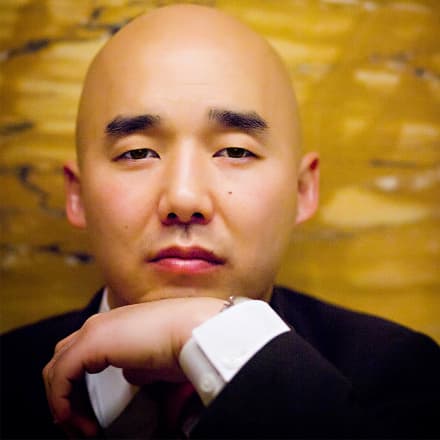
From: Seoul, Korea. LA Opera: Gastone in La Traviata (2024, debut); Pong in Turandot (2024).
Versatile tenor Julius Ahn delights audiences around the world with his unique interpretations. Of his signature role, Goro in Madama Butterfly, critics hailed “As the marriage broker Goro, tenor Julius Ahn was in his element, delivering the wickedness of his character with gusto.” Mr. Ahn performed the role in his debut at San Francisco Opera and returned there to reprise it, as well as with the Canadian Opera Company, Palm Beach Opera, Vancouver Opera, Michigan Opera Theatre, Opera Carolina, Nashville Opera, Pittsburgh Opera, Lyric Opera of Kansas City and Virginia Opera, and at the Royal Albert Hall in London.
In the 2022/23 season, Ahn was thrilled to reprise the lead role of Guang in Stuck Elevator by Byron Au Yong and Aaron Jafferis for Nashville Opera in addition to performing Borsa in Rigoletto with the Dallas Opera, Kaspar in Amahl and the Night Visitors with On Site Opera, Mime in Das Rheingold with Atlanta Opera, and Bardolf in Sir John in Love with Bard Music Festival. In his signature role of Goro in Madama Butterfly, Ahn joined the San Francisco Opera for their centennial celebratory production of the opera, as well as Atlanta Opera, Cincinnati Opera and New Orleans Opera.
The 2023/24 season’s engagements include returns to Detroit Opera and Opera Philadelphia for Madama Butterfly.
In recent seasons, Mr. Ahn joined the roster of the Metropolitan Opera for performances of The Nose, Turandot, Rigoletto and Die Fledermaus, making his mainstage debut as the Second Priest in The Magic Flute. Ahn also returned to the Canadian Opera Company as Goro, joined Cincinnati Opera as Spoletta in Tosca, Gherardo in Tulsa Opera’s Gianni Schicchi, and Borsa in Opera Philadelphia’s Rigoletto. He performed in two productions with the Korean National Opera: Gastone in La Traviata and Nick in The Girl of the Golden West. He has now performed the role of Pang in Turandot in over 10 productions including with San Francisco Opera, Vancouver Opera, Michigan Opera Theatre, Utah Symphony & Opera, Opera Philadelphia, Pittsburgh Opera, Atlanta Opera, Tulsa Opera, Seattle Opera and Cincinnati Opera.
Previous engagements have also included Monostatos in The Magic Flute with Opera Carolina, Hawaii Opera Theatre, Michigan Opera Theatre, Opera Omaha, and the Pacific Symphony; Mark in Michael Tippett’s The Midsummer Marriage with Boston Modern Orchestra Project at Jordan Hall; and Basilio and Curzio in The Marriage of Figaro with Lyric Opera Baltimore; Bardolfo in Falstaff with Opera Omaha; and Antenore in a concert version of Rossini's Zelmira with Washington Concert Opera.
Ahn was cast in the lead role of Guang in Stuck Elevator by Byron Au Yong and Aaron Jafferis with the Sundance Institute Theatre Lab 2011 at the Banff Centre, as well as with the Sundance Institute Theatre Lab 2012 at White Oak. He performed the role in the world premiere with the American Conservatory Theatre in San Francisco, which earned him an Award for Outstanding Achievement in Theatre (Principal Actor in a Musical) from the San Francisco Bay Area Theatre Critics Circle. He later reprised the role with the Arts and Ideas Festival in New Haven, Connecticut, and did so again with New York Theatre Workshop.
He portrayed Sellem in The Rake’s Progress with Princeton Festival; Bégearss in The Ghosts of Versailles with Aspen Opera Theater Center; and Demo in Cavalli’s Giasone with Chicago Opera Theater. He was also seen as Conrado in a workshop performance of Long Season by Chay Yew and Fabian Obispo, as part of Huntington Theatre Company’s Breaking Ground Festival. Ahn attended the New England Conservatory of Music, where he studied with the world-renowned tenor Vinson Cole and performed a wide range of operatic roles.
Learn more at JuliusAhn.com.
Alan Williams
A Mandarin
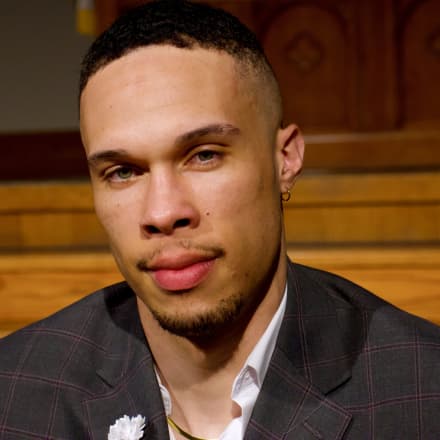
From: San Bernardino, California. LA Opera: Abe in Omar (2022, debut); soloist in Frankenstein with Live Orchestra (2022); Collatinus in The Rape of Lucretia (2023); Antonio in The Marriage of Figaro (2023); Jethro / Voice of God 2 in Moses (2023); Montano in Otello (2023); Masetto in Don Giovanni (2023); Third Villager in Frida y Diego (2023); Sheriff in Highway 1, USA (2024); Doctor Grenvil in La Traviata (2024); Mandarin in Turandot (2024). He joined the Domingo-Colburn-Stein Young Artist Program in 2022.
Alan Williams recently received his specialist and master's degrees in voice performance from the University of Michigan under the tutelage of Daniel Washington. He received his undergraduate degree in 2018 from Northern Arizona University, where he studied with Dr. Judith Cloud.
In the summer of 2023, he appears with Aspen Music Festival as the Voice of the Oracle (Neptune) in Idomeneo, also covering the role of General Benjamin in Jimmy Lopez's Bel Canto.
He has performed a number of major roles with various festivals and universities including John P. Parker in Adolphus Hailstork’s Rise for Freedom: The John P. Parker Story, Rev. Olin Blitch in Carlisle Floyd’s Susannah and the title role in Donizetti’s Don Pasquale. He has also performed in various concerts with Detroit Opera, recently in Detroit Players Club Opera Event. In the fall of 2021, Alan was invited to sing for Jean Snyder's presentation on the works of Harry T. Burleigh at the Oxford Lieder Festival in Oxford, England. He has also had the honor of singing with Dr. Eugene Rogers' professional chamber choir Exigence since 2020.
He has received notable awards, recently earning an encouragement award at the Arizona District Laffont Competition. In 2021, he was named the winner of the Graduate Concerto Competition at the University of Michigan. Also during his M.M. studies at Michigan, he was selected as a national finalist in the 2019 National Association of Negro Musicians convention. In his undergraduate studies at Northern Arizona University, he was selected as a finalist for two consecutive years in the Rocky Mountain District for MONC auditions.
In the summer of 2022, he joined the Frank R. Brownell III Apprentice Program at Des Moines Metro Opera, where he sung the role of Theseus in A Midsummer Night’s Dream and covered the role of the Lawyer in Porgy and Bess.
Ashley Faatoalia
Emperor Altoum
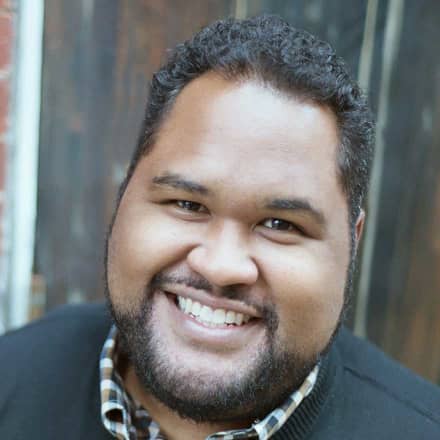
From: Los Angeles, California. LA Opera: Crab Man in Porgy and Bess (2007, debut); Sage/Counselor in The Festival Play of Daniel (2010); Habakkuk in The Festival Play of Daniel (2012); On Now recital (2021); the Digital Short We Hold These Truths (2022); Simon/Pharisee in The Three Women of Jerusalem (2022); Amadou in Omar (2022); soloist in Frankenstein with Live Orchestra (2022); Emperor in Turandot (2024). He works regularly with LA Opera Connects as a teaching artist.
Born and raised in Los Angeles, Ashley Faatoalia has been singing for as long as he can remember. He studied voice at Chapman University with Dr. Peter Atherton and since then he has been performing around the world.
In the first few years of his professional career, Ashley has become a sought-after vocalist for new works and experimental projects working closely with composers from across the country including, Lewis Pesacov, Rand Steiger, Bruno Louchouarn, Christopher Cerrone, Anne LeBaron and many more.
Often noted for his soaring tenor and warm stage presence, he has recently performed the role of Antron’s father in the premiere of Anthony Davis's Pulitzer Prize-winning Central Park Five with Long Beach Opera, the role of the Crab Man in Porgy and Bess with Seattle Opera, EUROPERAS with the Los Angeles Philharmonic and The Industry, Albert Hoffman in Anne LeBaron's LSD: The Opera with The Industry, his debut as Marco Polo in the premiere of Chris Cerrone's Emmy Award-winning and Pulitzer-Prize-nominated Invisible Cities with The Industry, Charles Edward in Candide with the Los Angeles Philharmonic, and many more. He has also had the honor of singing the national anthem to sold-out audiences at Dodger Stadium and the Staples Center.
Upcoming work includes Remus in Treemonisha with Volcano Theatre of Toronto, recitals for LA Opera and more. He is featured on multiple professional recordings including the original cast recordings of Invisible Cities (CD/DVD/digital release) and The Edge of Forever (vinyl/digital release) and San Francisco Opera's production of Porgy and Bess (BluRay-DVD).
Learn more at AshleyFaatoalia.com.
Creative Team
- Conductor
- James Conlon
- Director
- Garnett Bruce
- Scenery
- David Hockney
- Costumes
- Ian Falconer
- Original Lighting Design
- Thomas J. Munn
- Chorus
- Jeremy Frank
James Conlon
Conductor
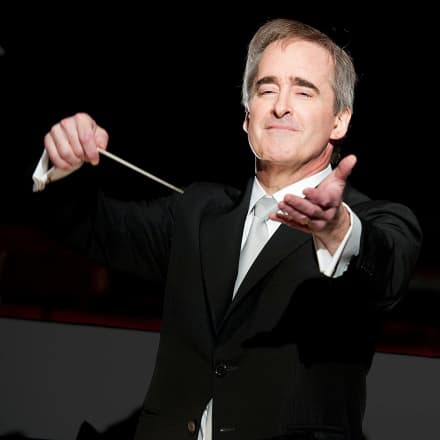
James Conlon has been LA Opera's Richard Seaver Music Director since 2006.
Since his debut that year with La Traviata, he has conducted 67 different operas and more than 450 performances to date with the company.
(Click here to visit James Conlon's Corner, where you can find essays, videos and conversations he has created especially for LA Opera.)
Internationally recognized as one of today’s most versatile and respected conductors, James Conlon has cultivated a vast symphonic, operatic and choral repertoire. Since his 1974 debut with the New York Philharmonic, he has conducted virtually every major American and European symphony orchestra, and at many of the world’s leading opera houses including the Metropolitan Opera. Through worldwide touring, an extensive discography and filmography, numerous writings, television appearances, and guest speaking engagements, Conlon is one of classical music’s most recognized and prolific figures.
Conlon has been Principal Conductor of the RAI National Symphony Orchestra in Torino, Italy (2016–20); Principal Conductor of the Paris Opera (1995–2004); General Music Director of the City of Cologne, Germany (1989–2003), simultaneously leading the Gürzenich Orchestra and the Cologne Opera; and Music Director of the Rotterdam Philharmonic Orchestra (1983–91). Conlon was Music Director of the Ravinia Festival (2005–15), summer home of the Chicago Symphony, and is now Music Director Laureate of the Cincinnati May Festival―the oldest choral festival in the United States―where he was Music Director for 37 years (1979–2016), marking one of the longest tenures of any director of an American classical music institution. He also served as Artistic Advisor of the Baltimore Symphony Orchestra (2021–2023). He has conducted over 270 performances at the Metropolitan Opera since his 1976 debut. He has also conducted at leading opera houses and festivals such as the Vienna State Opera, Salzburg Festival, La Scala, Teatro dell’Opera di Roma, Mariinsky Theatre, Covent Garden, Chicago Lyric Opera, Teatro Comunale di Bologna, and Teatro del Maggio Musicale Fiorentino.
As Music Director of LA Opera, Conlon has led more operas than any other conductor in company history. Highlights of his LA Opera tenure include the company’s first Ring cycle; initiating the groundbreaking Recovered Voices series, an ongoing commitment to staging masterpieces of 20th-century European opera suppressed by the Third Reich; spearheading Britten 100/LA, a city-wide celebration honoring the composer’s centennial; and conducting the West Coast premiere of The Anonymous Lover by Joseph Bologne, Chevalier de Saint-Georges, a prominent Black composer in 18th-century France.
Conlon opens his 18th season at LA Opera conducting Mozart’s Don Giovanni directed by Kasper Holten. His groundbreaking Recovered Voices initiative, dedicated to rescuing works from historical neglect or censorship, returns to the company with a double-bill featuring the company premiere of William Grant Still’s Highway 1, USA in a new production directed by Kaneza Schaal, and a revival of Zemlinsky’s The Dwarf (Der Zwerg)—an opera that launched the Recovered Voices initiative in 2008—directed by Darko Tresnjak. He also conducts Verdi’s La Traviata—the first opera he led as Music Director of LA Opera—continuing his multi-season focus on the works of the great Italian composer. To date, Conlon has conducted more than 500 international performances of Verdi’s repertoire. Conlon closes his LA Opera season honoring the 100th anniversary of Puccini’s death, conducting Turandot, Puccini’s final opera composed in 1924.
Additional highlights of his season include returning to the Chicago Symphony Orchestra to lead Mendelssohn’s Elijah, and conducting Wagner’s Lohengrin at Deutsche Oper Berlin. He also returns to Switzerland’s Bern Symphony, where he is Principal Guest Conductor, to lead three programs including Schubert and Beethoven symphonies, a celebratory New Years Day concert, and a season finale with Shostakovich’s Symphony No. 5.
Conlon is dedicated to bringing composers silenced by the Nazi regime to more widespread attention, often programming this lesser-known repertoire throughout Europe and North America. In 1999 he received the Vienna-based Zemlinsky Prize for his work bringing the composer’s music to a broader audience; in 2013 he was awarded the Roger E. Joseph Prize at Hebrew Union College-Jewish Institute of Religion for his efforts to eradicate racial and religious prejudice and discrimination; and in 2007 he received the Crystal Globe Award from the Anti-Defamation League. His work on behalf of silenced composers led to the creation of The OREL Foundation, an invaluable resource on the topic for music lovers, students, musicians, and scholars; the Ziering-Conlon Initiative for Recovered Voices at the Colburn School; and a recent virtual TEDx Talk titled “Resurrecting Forbidden Music.”
Conlon is deeply invested in the role of music in civic life and the human experience. At LA Opera, his popular pre-performance talks blend musicology, literary studies, history, and social sciences to discuss the enduring power and relevance of opera and classical music. He also frequently collaborates with universities, museums, and other cultural institutions and works with scholars, practitioners, and community members across disciplines. He frequently appears throughout the country as a speaker on a variety of cultural and educational topics.
Conlon’s extensive discography and filmography spans the Bridge, Capriccio, Decca, EMI, Erato, and Sony Classical labels. His recordings of LA Opera productions have received four Grammy Awards, two respectively for John Corigliano’s The Ghosts of Versailles and for Kurt Weill’s Rise and Fall of the City of Mahagonny. Additional highlights include an ECHO Klassik Award-winning recording cycle of operas and orchestral works by Alexander Zemlinsky; a CD/DVD release of works by Viktor Ullmann, which won the Preis der deutschen Schallplattenkritik; and the world-premiere recording of Liszt’s oratorio St. Stanislaus.
Conlon holds four honorary doctorates, was one of the first five recipients of the Opera News Awards, and was distinguished by the New York Public Library as a Library Lion. He received a 2023 Cross of Honor for Science and Art (Österreichische Ehrenkreuz für Wissenschaft und Kunst) from the Republic of Austria, and was named Commendatore Ordine al Merito della Repubblica Italiana by Sergio Mattarella, President of the Italian Republic. He was also named Commandeur de L’Ordre des Arts et des Lettres by the French Minister of Culture and, in 2002, personally accepted France’s highest honor, the Legion d’Honneur, from then-President of the French Republic Jacques Chirac.
Learn more at JamesConlon.com.
Mr. Conlon’s first season as Artistic Advisor of the Baltimore Symphony Orchestra includes three weeks of concerts, starting with an October 2021 program of music by historically marginalized composers. The featured works are Alexander Zemlinsky’s Die Seejungfrau (The Mermaid), which is the piece that sparked Mr. Conlon’s interest in suppressed music from the early 20th century, and William Levi Dawson’s Negro Folk Symphony, which reflects a theme that will recur throughout Mr. Conlon’s advisorship—the bringing of attention to works by American composers neglected due to their race. He returns in February 2022 for performances including Beethoven’s Eighth Symphony and the final scene of Wagner’s Die Walküre, with guest artists Christine Goerke and Greer Grimsley. The BSO season concludes in June 2022 with Mr. Conlon conducting an orchestra co-commission from Wynton Marsalis, Rachmaninoff’s Rhapsody on a Theme of Paganini with Beatrice Rana, and Shostakovich’s Seventh Symphony (“Leningrad”). As Artistic Advisor, in addition to leading these performances, Mr. Conlon will help ensure the continued artistic quality of the orchestra and fill many duties off the podium, including those related to artistic personnel—such as filling important vacancies and attracting exceptional musicians.
Additional highlights of Mr. Conlon’s season include Bach’s St. Matthew Passion at Rome Opera, Wagner’s The Flying Dutchman at New National Theatre, Tokyo, the Paris Opera’s Gala lyrique with Renée Fleming, and concerts with the Cincinnati Symphony Orchestra (Dawson’s Negro Folk Symphony and works by Beethoven and Bernstein), Gürzenich Orchester Köln (Sinfoniettas by Zemlinsky and Korngold), Hamburg Philharmonic State Orchestra (works by Shostakovich and Zemlinsky), and at Maggio Musicale Fiorentino. Mr. Conlon’s 2021/22 season follows a spring and summer in which he was highly active amidst the re-opening of many venues to live performance. These engagements included concerts with the Detroit Symphony Orchestra, Deutsche Symphonie-Orchester Berlin, Orchestra del Teatro Comunale di Bologna, and RAI National Symphony Orchestra. He also led a series of performances in Spain scheduled around World Music Day (June 21). In Madrid, over a period of two days, he conducted the complete symphonies of Schumann and Brahms in collaboration with four different Spanish orchestras: the Orquesta Nacional de España, Orquesta Sinfónica de Galicia, Orquesta Sinfónica de Castilla y León, and Joven Orquesta Nacional de España (JONDE). He subsequently conducted JONDE at the Festival de Granada and Seville’s Teatro de la Maestranza. Additional summer 2021 engagements included the Aspen, Napa, Ravello, and Ravinia Festivals.
In an effort to call attention to lesser-known works of composers silenced by the Nazi regime, Mr. Conlon has devoted himself to extensive programming of this music throughout Europe and North America. In 1999 he received the Vienna-based Zemlinsky Prize for his efforts in bringing that composer’s music to international attention; in 2013 he was awarded the Roger E. Joseph Prize at Hebrew Union College-Jewish Institute of Religion for his extraordinary efforts to eradicate racial and religious prejudice and discrimination; and in 2007 he received the Crystal Globe Award from the Anti-Defamation League. His work on behalf of suppressed composers led to the creation of The OREL Foundation, an invaluable resource on the topic for music lovers, students, musicians, and scholars; the Ziering-Conlon Initiative for Recovered Voices at the Colburn School; and a recent virtual TEDx Talk titled “Resurrecting Forbidden Music.”
Mr. Conlon is an enthusiastic advocate of public scholarship and cultural institutions as forums for the exchange of ideas and inquiry into the role music plays in our shared humanity and civic life. At LA Opera, he leads pre-performance talks, drawing upon musicology, literary studies, history, and social sciences to contemplate—together with his audience—the enduring power and relevance of opera and classical music in general. Additionally, he frequently collaborates with universities, museums, and other cultural institutions, and works with scholars, practitioners, and community members across disciplines. His appearances throughout the country as a speaker on a variety of cultural and educational topics are widely praised.
Mr. Conlon’s extensive discography and videography can be found on the Bridge, Capriccio, Decca, EMI, Erato, and Sony Classical labels. His recordings of LA Opera productions have received four Grammy Awards, two respectively for John Corigliano’s The Ghosts of Versailles and Kurt Weill’s Rise and Fall of the City of Mahagonny. Additional highlights include an ECHO Klassik Award-winning recording cycle of operas and orchestral works by Alexander Zemlinsky; a CD/DVD release of works by Viktor Ullmann, which won the Preis der deutschen Schallplattenkritik; and the world-premiere recording of Liszt’s oratorio St. Stanislaus.
Mr. Conlon holds four honorary doctorates and has received numerous other awards. He was one of the first five recipients of the Opera News Awards, and was honored by the New York Public Library as a Library Lion. He was named Commendatore Ordine al Merito della Repubblica Italiana by Sergio Mattarella, President of the Italian Republic. He was also named Commandeur de L’Ordre des Arts et des Lettres by the French Minister of Culture and, in 2002, personally accepted France’s highest honor, the Legion d’Honneur, from then-President of the French Republic Jacques Chirac.
Learn more at JamesConlon.com.
Garnett Bruce
Director
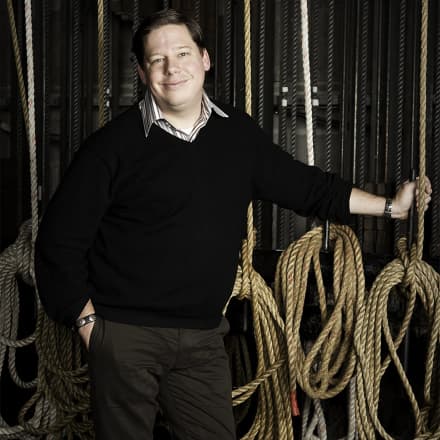
From: Washington, DC. LA Opera: Turandot (2024, debut).
Garnett Bruce’s body of work includes directing at the Lyric Opera of Chicago, San Francisco Opera, Houston Grand Opera, Washington National Opera, Dallas Opera and his European opera debut staging Turandot for the Teatro di San Carlo in Naples among many others.
From 2008 to 2011 he was the artistic adviser and principal stage director for Opera Omaha, where he led a cycle of the Mozart-Da Ponte operas. He began directing for the Peabody Conservatory of Johns Hopkins University in 2004, receiving a faculty appointment in 2006. He was on staff at the Aspen Music Festival and School from 1993 and joined the faculty from 1997 until 2019. In 2022 he joins the faculty of University of Texas at Austin’s Butler School of Music as Lecturer in Opera Studies and Stage Director.
Born in Washington, D.C., Bruce was a choirboy at Washington National Cathedral and holds degrees in English and drama from Tufts University. After internships with Hal Prince and Leonard Bernstein in the early 1990’s, he joined the staffs of the Santa Fe Opera, Washington National Opera, Dallas Opera, and Opera Colorado. His award-winning production of La Cenerentola for Kansas City has traveled to Austin, Orlando, and Madison. Known especially for his large-scale work of the standard repertoire, he has created stagings of Turandot, Carmen, Tosca, Aida, Pagliacci and La Bohème that have been seen coast to coast.
Learn more at GarnettBruce.com.
David Hockney
Scenery
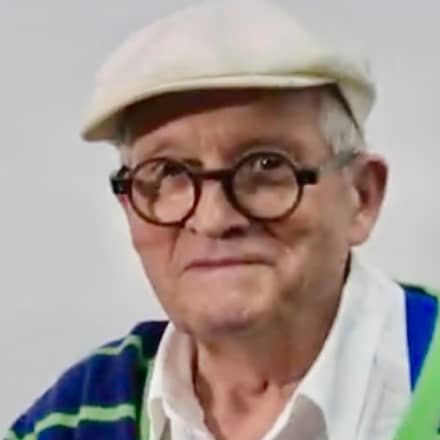
From: Bradford, England. LA Opera: Tristan und Isolde (1987, debut; also 1997, 2008); Die Frau ohne Schatten (1993, 2004); Turandot (2024).
A British artist based in Los Angeles for many years, David Hockney (born 1937) is a distinguished designer, artist and author whose work has been seen at the world’s most prestigious venues. He is among the most visible and well-known serious contemporary artists of our time. His distinctive style and use of color and light have graced an enormous range of art media since the 1960s, encompassing etchings, paintings, drawings, photographic collages and printing, as well as the creation of landmark theatrical designs for film, theater and opera.
For Glyndebourne Opera, he has designed productions of The Rake’s Progress and The Magic Flute. His designs for Turandot premiered in 1992 at Lyric Opera of Chicago, and were seen on PBS’ “Great Performances” at the San Francisco Opera. He has also designed sets and costumes for Stravinsky’s Le Sacre du Printemps, Le Rossignol and Oedipus Rex. In 1987-1988 he wrote, directed and was featured in the film A Day on the Grand Canal with the Emperor of China or Surface is Illusion but so is Depth, produced by Philip Haas. He is the author of Secret Knowledge: Rediscovering the Lost Techniques of the Old Masters. In 1997 he received the Order of the Companion of Honour Award from Queen Elizabeth II.
Learn more about his art at Hockney.com.
Ian Falconer
Costumes

From: Ridgeville, Connecticut. LA Opera: Die Frau ohne Schatten (1993, debut; 2004); Turandot (2024).
The late Ian Falconer (1959-2023) studied at New York University, Parson’s School of Design and the Otis Art Institute, Los Angeles. He worked as a painter, illustrator and scenic designer, and his work includes many theater productions in New York and Los Angeles. He designed the costumes for Tristan und Isolde and Die Frau ohne Schatten (LA Opera) and Turandot (Lyric Opera of Chicago), both of which had sets by David Hockney. He designed sets and costumes for New York City Ballet, Boston Ballet and the Royal Opera House Covent Garden. He designed many covers for The New Yorker and was the author and illustrator of all the titles in the bestselling Olivia series: Olivia, Olivia Saves the Circus, Olivia...and the Missing Toy, and Olivia Forms a Band.
Thomas J. Munn
Original Lighting Design
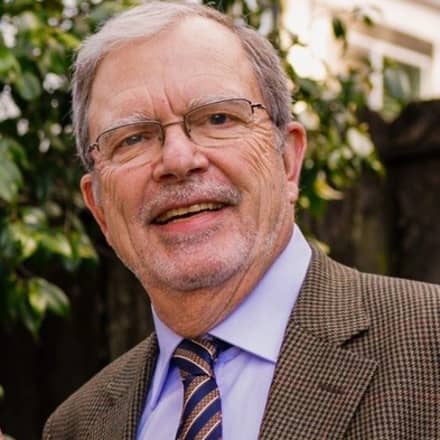
From: New Britain, Connecticut. LA Opera: Samson et Dalila (1999, debut); Turandot (2024).
Thomas J. Munn (1944-2022) was Resident Lighting Designer for the San Francisco Opera for over 20 years. In 1975 he was invited to design the lighting for Verdi's Macbeth for the Netherlands Opera. That production brought him to the attention to Kurt Herbert Adler, who invited him to join the San Francisco Opera production team. Tom designed the lighting for 285 productions for the company as well as dozens of productions for companies around the world.
In 2003, he was appointed Professor of Theatre and Dance at UC Davis, where he co-created the MFA program in theatre design. He took great joy in working with his students, sharing with them his love of the live performing arts, and passing on the traditions of his craft. He retired as professor emeritus in 2014.
Insatiably curious and even more energetic, Tom enthusiastically embraced new technologies in the theater. He developed innovative ways to use projections and was instrumental in installing some of the earliest computerized lighting systems. When the Opera House was renovated following the 1989 earthquake, he was an integral part of the design of the new theatrical lighting system. He also served as the lighting consultant for the 2006 renovation of the historic St. Mark's Lutheran Church in San Francisco.
Jeremy Frank
Chorus
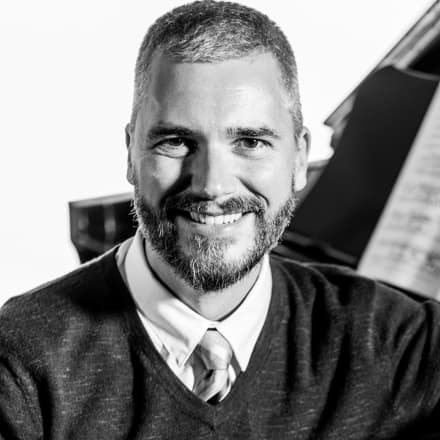
Jeremy Frank became Chorus Director in 2022.
Since joining LA Opera in 2007, he has served as associate chorus director (since 2011) and assistant conductor, and he has worked closely with the Domingo-Colburn-Stein Young Artist Program. Before becoming Chorus Director, he previously directed the LA Opera Chorus for the Plácido Domingo 50th Anniversary Concert (2017) and for The Clemency of Titus (2019). One of his generation’s most respected pianists and vocal coaches, he has collaborated with major opera houses throughout the United States. He has assisted in the preparation of operas and vocal chamber music at the LA Philharmonic. As a pianist, he has partnered with Sondra Radvanovsky, J'Nai Bridges, Eric Owens, Brandon Jovanovich, Rodell Rosel, Dolora Zajick, Kate Lindsey and Susan Graham. He accompanied Joyce DiDonato at the 54th Grammy Awards, the first time the ceremony featured a performance by a classical singer.
In partnership with the Getty Villa and LACMA in Los Angeles and the Phillips Collection in Washington D.C., he has curated multimedia recitals which draw connections between the classical vocal repertoire and special exhibits in the museums. He is a frequent collaborator at Wolf Trap Opera as an assistant conductor, chorus master and recitalist. He has been a guest coach at the Opernfestspiele St. Margarethen, in Esterhazy, Austria, and he helped prepare Seattle Opera’s Ring cycle in 2013. He has been a guest faculty member for young artist programs at Utah Opera and Seattle Opera, and he is a part-time lecturer in vocal arts and opera at the University of Southern California. (JeremyMFrank.com)
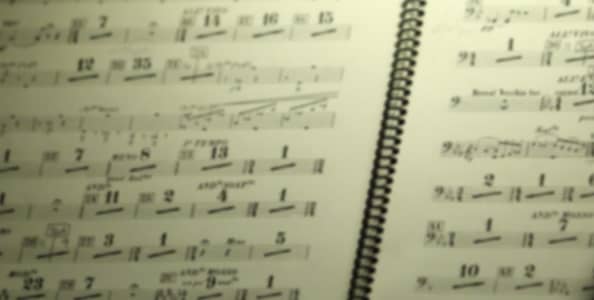
Read the synopsis

Synopsis
Act One
The drama unfolds in a legendary Peking, China. Princess Turandot will only marry a man who can solve her three riddles; all who fail must die. Many heroes have perished trying to win her hand. The kingdom has gathered to witness the execution of the latest to fail, the Prince of Persia. Timur, the deposed King of the Tartars, old and blind, hides among the crowd with his servant girl Liù. Timur falls when the crowd surges forward to see the Prince. Timur’s son Calaf, recognizing his father, helps the old man to his feet. The crowd cries out for blood, calling on the moon to rise, for that is the moment of execution. But when the Prince appears, he is pale, handsome, and barely more than a boy. The crowd takes pity on him and begs Turandot to have mercy on him. Turandot appears to signal the execution and Calaf is captivated by her heavenly beauty. Timur and Liù try to impress upon him that pursuing his infatuation will only end badly as the Prince of Persia is executed, but Calaf will hear none of it. Calaf rushes to strike the gong, thereby declaring his intention to pursue Turandot, but Ping, Pang and Pong, the Emperor’s ministers, intervene. They warn him that striking the gong leads to certain death, and Timur and Liù echo their entreaties while the ghosts of Turandot’s executed suitors egg Calaf on. Liù cannot bear Calaf’s obstinate, destructive resolve (“Signore, ascolta!”). Calaf tries to comfort her (“Non piangere, Liù”), but Liù only foresees certain death. He rushes forward and strikes the gong three times.
Act Two
Scene One
Ping, Pang, and Pong sit in a pavilion on the grounds of the palace recalling the countless executions they’ve seen since the birth of Princess Turandot. Thirteen men have already died this year, and the ministers are ready to make Calaf the 14th name on that list. They dream of the day when the executions will end, but preparations are already underway for Calaf.
Scene Two
Eight wise men appear in the square carrying scrolls with the answers to the three riddles (“Gravi, enormi ed impotenti”). The ancient Emperor, enthroned in venerable majesty, begs Calaf to leave, but the Tartar prince will not yield. Turandot recounts the story of Princess Lou-Ling, her ancestor, dragged away by invading Tartars (“In questa reggia”). Hatred for the man who killed her lives on in Turandot’s heart, and no man shall ever possess her. Turandot then speaks the riddles. Calaf answers each one correctly, but Turandot refuses to become his wife. He tells her that if she can discover his name before dawn, he will let her have him executed.
Act Three
The heralds announce that by order of Princess Turandot, tonight no man shall sleep. Death will be the penalty if the stranger’s name is not known by dawn. Calaf vows to only reveal his name to Turandot once daylight has broken (“Nessun dorma!”). Ping, Pang, and Pong try to wrench the secret from Calaf, but he refuses all of their attempts to elicit his name. Soldiers bring in Timur and Liù, and Turandot enters to interrogate them. Liù declares that she alone knows the stranger’s name. The soldiers try to torture it out of her, but she grabs one of their daggers and stabs herself, declaring that by her sacrifice, the princess will come to love the stranger. Timur follows Liù’s body as the people lift it and carry it away. Calaf indignantly kisses Turandot, trying to thaw the princess of ice (“Principessa di morte!”). Dawn breaks, and with it, Turandot’s resolve. When the crowd asks if she knows the stranger’s name, she replies, looking into Calaf’s eyes, “His name is love!” Spared death, the populace celebrates their happiness.
Sung in Italian with English subtitles
Running time: two hours and 55 minutes, including two intermissions
Production from San Francisco Opera
Audio description will be available for the May 26 matinee.
Tickets Start at $34 - Lowest Prices and Best Availability on May 30 and June 5.
Save More with a Package-
GET ACCESS {{ performance.display_time }}AvailableOnline{{ performance.display_day }}{{ performance.display_month_clean }} {{ performance.display_date }}

